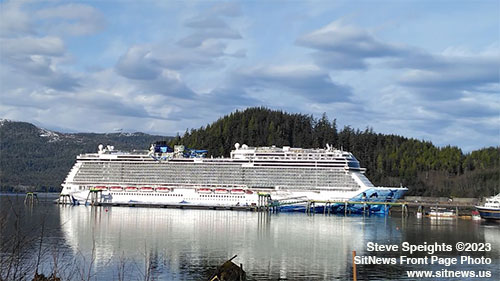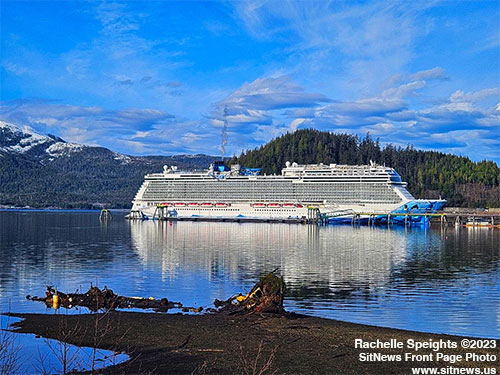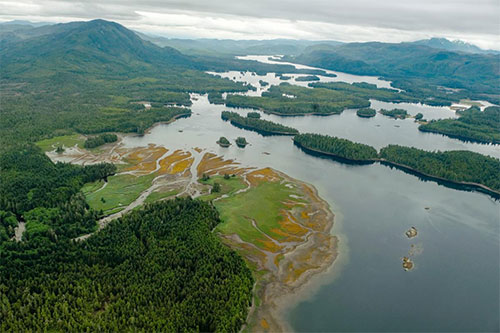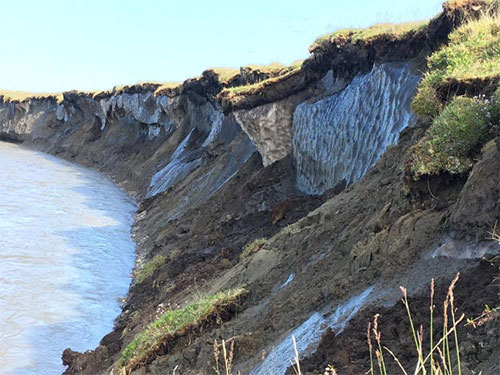










 Contact Contact 
 Webmail
Letters Webmail
Letters
 News Tips News Tips
 Copyright Info Copyright Info
 Archives Archives
Quick News
Search
 Alaska Alaska
 Ketchikan Ketchikan
 SE Alaska SE Alaska
Columns
- Articles
 Dave Kiffer Dave Kiffer
 Money Matters Money Matters
Historical
Ketchikan
 June Allen June Allen
 Dave
Kiffer Dave
Kiffer
 Louise
B. Harrington Louise
B. Harrington
Sports
 Ketchikan Links Ketchikan Links
Public Records
 FAA Accident Reports FAA Accident Reports
 NTSB
Accident Reports NTSB
Accident Reports
 Court Calendar Court Calendar
 Recent Filings & Case Dispositions Recent Filings & Case Dispositions
 Court Records Search Court Records Search
 Sex Offender Reg. Sex Offender Reg.
 Public Notices Public Notices
 Alaska Recall Alerts Alaska Recall Alerts
 Recalls.gov Recalls.gov
 AST Daily Dispatch AST Daily Dispatch
 KTN
Police Reports KTN
Police Reports
 Juneau Police Reports Juneau Police Reports
Weather,
Webcams
 Today's
Forecast Today's
Forecast
 KTN
Weather Data KTN
Weather Data
 AK
Weather Map AK
Weather Map
 AK Weathercams AK Weathercams
 AK Earthquakes AK Earthquakes

|

Wednesday PM -
April 26, 2023

Northern Flicker
Often said to have a gentle expression, the northern flicker or common flicker is a medium-sized bird of the woodpecker family. It's the most widespread woodpecker species in North America.
SitNews Front Page Photo By STEVE RIPLEY©2023
To have your photo(s) featured on the front page,
email your photo(s) to editor@sitnews.us |
|
Ketchikan Historical: When The First City was ‘no town at all’; Dalton first came to Ketchikan in 1889 By DAVE KIFFER -
Likely, the earliest recorded memories of what Ketchikan was like at or near the beginning of its history comes from one of the original founders of Metlakatla, Simon Dalton, who first saw Ketchikan in 1889.
Dalton, who died at the age of 93 on April 16,1971, was interviewed by long-time Ketchikan teacher Bernice Tillotson in 1965 as part of history project at Ketchikan Community College. June Allen, wrote a story based on the interview for the Ketchikan Daily News that was published in 1965.
Dalton was born in Old Metlakatla, British Columbia, a village not far from modern Prince Rupert April 29, 1877, and came to New Metlakatla on Annette Island along with 400 plus other Tsimshian’s who followed Father William Duncan in 1887.
Dalton’s father brought him to visit the tiny community of Ketchikan in 1889, which at that point was just a small salmon saltery and some cabins at the mouth of Ketchikan Creek. The 1890 US Census would note that there were around 40 year-round residents of “Kichikan”. By comparison, Loring had 200 residents and Metlakatla 823.
“Ketchikan was no town at all,” Dalton told Tillotson in 1965.
The saltry was located on what is now Dock Street, on the block between Front and Main streets. Dalton said that he remembered no whites living in the small cabins closest to the Creek itself, only Natives, mostly Tlingits. He said he remembered his father using “Chinook” trade jargon to communicate with the Tlingits near the Creek.
“The Tlingits told us that long years ago they had lived on the north end of another island,” Dalton remembered in 1965. “Just lately they had moved over to Ketchikan. There were two tribes together, one on one side of the creek and one on the other. “The people that lived on the south were the Tlingit tribe La Chi Lu. Those that lived on the north side were the Tam-gas. That is a Tlingit name, it is a hard spelling. It is said like Tam-cass.”
Dalton said there was a single small store in the village, Clark & Martin, which was close to today’s intersection of Mission and Bawden streets.
“People got supplies there, all groceries and supplies and dry goods too,” Dalton remembered. “Candy for the kids, I was about 10 then.”
Dalton visited Ketchikan several times in the next few years.
“Other white people began to arrive then, prospectors and miners, they came one after another,” he remembered. “They built homes by the north side of the creek. The La Chi Lu people on the south side of the creek moved to Saxman.”
The Tam-gas, he said, were “all wiped out,” perhaps meaning that they moved elsewhere. The first Ketchikan cannery operated in 1888, adjacent to the original saltery, according to Dalton. But the cannery burned in 1889.
In 1900 the Fidalgo Island Packing cannery was built. south of Ketchikan Creek along what became Stedman Street.
“That’s where I worked, at the cannery,” Dalton said in 1965. “Still more people came. Lots of white people came. Then they built roads. There were no roads for a long time, we had to walk the beaches.” - More...
Wednesday PM - April 26, 2023 |
|
Southeast Alaska: Searching for ancient bears in an Alaskan cave led to an important human discovery - The first people to live in the Americas migrated from Siberia across the Bering land bridge more than 20,000 years ago. Some made their way as far south as Tierra del Fuego, at the tip of South America. Others settled in areas much closer to their place of origin where their descendants still thrive today.
In “A paleogenome from a Holocene individual supports genetic continuity in Southeast Alaska,” published Friday in the journal iScience, University at Buffalo evolutionary biologist Charlotte Lindqvist and collaborators show, using ancient genetic data analyses, that some modern Alaska Natives still live almost exactly where their ancestors did some 3,000 years ago.
Lindqvist, PhD, associate professor of biological sciences in the UB College of Arts and Sciences, is senior author of the paper. In the course of her studies in Alaska, she explored mammal remains that had been found in a cave in the state’s southeast coast. One bone was initially identified as coming from a bear. However, genetic analysis showed it to be the remains of a human female.
“We realized that modern Indigenous peoples in Alaska, should they have remained in the region since the earliest migrations, could be related to this prehistoric individual,” says Alber Aqil, a UB PhD student in biological sciences and the first author of the paper. This discovery led to efforts to solve this mystery, which DNA analyses are well suited to address when archeological remains are as sparse as these were.
Learning from an ancestor
The earliest peoples had already started moving south along the Pacific Northwest Coast before an inland route between ice sheets became viable. Some, including the female individual from the cave, made their home in the area that surrounds the Gulf of Alaska. That area is now home to the Tlingit Nation and three other groups: Haida, Tsimshian, and Nisga’a.
As Aqil and colleagues analyzed the genome from this 3,000-year-old individual — “research that was not possible just 20 years ago,” Lindqvist noted — they determined that she is most closely related to Alaska Natives living in the area today. This fact showed it was necessary to carefully document as clearly as possible any genetic connections of the ancient female to present-day Native Americans.
In such endeavors, it is important to collaborate closely with people living in lands where archeological remains are found. Therefore, cooperation between Alaska Native peoples and the scientific community has been a significant component of the cave explorations that have taken place in the region. The Wrangell Cooperative Association named the ancient individual analyzed in this study as “Tatóok yík yées sháawat” (Young lady in cave). - More...
Wednesday -
April 26, 2023 |

Norwegian Bliss' first appearance for 2023
SitNews Front Page Photo By STEVE SPEIGHTS©2023
To have your photo(s) featured on the front page,
email your photo(s) to editor@sitnews.us |
|
Alaska: U.S. House votes to pass debt ceiling bill; House Republicans Proposals Jeopardize Transportation Safety and Infrastructure Across Alaska Says USDOT Posted/Edited By MARY KAUFFMAN - Speaker of the House Kevin McCarthy announced today that the House Republicans just passed the only bill in Washington that lifts the debt limit, ends wasteful Washingon spending and put America back on the right economic path. The plan is to limit the growth in the future, and save by pulling back the unspent COVID money. McCarthy said during a press conference, "We're going to grow this economy by making us energy indepdent again and getting more people, encouraging them back to work. The sad part is the Democrats need to do their job the president can no longer ignore by not negotiating."
A potential debt-ceiling crisis in the United States began unfolding on January 19, 2023, when the United States hit its debt ceiling.
The final vote was 217-215, with four Republicans – Ken Buck of Colorado, Andy Biggs of Arizona, Tim Burchett of Tennessee and Matt Gaetz of Florida – voting against the bill. The bill will raise the government's #31.4 trillion debt ceiling with sweeping cuts over the next decade.
However, the U.S. Department of Transportation responded in a news release saying the Congressional Republicans are holding the nation’s full faith and credit hostage in an effort to impose devastating cuts that would hurt rural communities, raise costs for hardworking families, and set back economic growth. Last week, House Republicans released their extreme proposal to hold our economy hostage in order to slash funding for programs the American people depend on in their everyday lives—including funding that’s vital for ensuring transportation safety and infrastructure in Alaska. And they are demanding these cuts while separately advancing proposals to add over $3 trillion to deficits through tax cuts and giveaways skewed to the wealthy and big corporations.
Quoting a news release from the USDOT, while the President’s Budget details a plan to make our communities safer and protect workers and consumers, House Republicans’ proposal to cut a broad range of critical programs in Alaska by 22%: - More...
Wednesday - April 26, 2023
Alaska: Friends of Admiralty Study is Misleading Says Alaska DEC ; New Study finds High Levels of Toxic Lead Harming Alaska's Admiralty Island National Monument Says Friends of Admiralty Island - A new peer-reviewed scientific study commissioned by the Friends of Admiralty Island has found tailings from the Hecla Greens Creek mine are likely the primary source of a 50 percent increase in lead that's poinoning the food chain in Admiralty Island's Hawk Inlet.
The Alaska Department of Environmental Conservation (DEC) reviewed the Friends of Admiralty’s recent study on butter clam shells in Hawk Inlet and Young Bay. Although the clam shell data from the Friends of Admiralty’s study are generally consistent with data previously reviewed, DEC does not agree with many of the report’s conclusions. The report generates false concern that Hawk Inlet is impaired and that nearby food resources are harmed. Since lead levels in shells do not relate to a toxicity threat for any predator that consumes the soft tissue part of a clam shell, such a conclusion is vastly overstated and in conflict with State’s over 30-years of environmental data.
The Friends of Admiralty’s report compares lead concentrations in butter clam shells taken from Hawk Inlet and Young Bay. The report’s conclusion suggests lead concentrations have increased over time and attributes recent lead concentration spikes around Hawk Inlet to the Greens Creek Mine. Friends of Admiralty also assert the mine is causing irreparable harm to the Admiralty Island National Monument.
Greens Creek Mine is required, through the State of Alaska permits, to monitor the Hawk Inlet ecosystem to evaluate the effect the mine has on the nearby environment, including lead concentration in Hawk Inlet water, marine sediment, and sea worm and mussel tissue. Data from these intensive State monitoring programs indicate that the vast majority of Hawk Inlet meets the Alaska water quality standards. The area near the historic ore spill in 1989 is currently listed as impaired and data from State monitoring programs and new data reviewed from Friends of Admiralty confirm this area is the only impairment in Hawk Inlet. - More...
Wednesday - April 26, 2023 |
|
Southeast Alaska: Tribes Issue Joint Letter Urging Canada to Address Growing Concerns of Mining Pollution in British Columbia - The Central Council of the Tlingit & Haida Indian Tribes of Alaska (Tlingit & Haida) recently issued a joint letter with 11 First Nations and Indigenous tribes of Canada and the United States (U.S.) calling for the governments of Canada and British Columbia to honor their legal and ethical obligations and act immediately to protect our recognized traditional territories from legacy, operational and proposed mining in British Columbia. For more than a decade, many First Nations and Indigenous tribes have sought Canadian and provincial action to reduce contamination from British Columbia’s abandoned, developing and operating mines in the headwaters of shared transboundary rivers.
“Tlingit & Haida has long advocated for the U.S. government to uphold its trust responsibility to tribes and to utilize any and all powers under the Boundary Waters Treaty of 1909 to ensure that our cultural existence and community health are not harmed by upstream development in B.C.,” said Tlingit & Haida President Richard Chalyee Éesh Peterson. “The conservation and restoration of our traditional lands and waters is crucial to maintaining our way of life and is an expression of our sovereignty. We will not stop until our concerns are addressed.”
Under the Boundary Waters Treaty of 1909, Canada agreed that “waters flowing across the [U.S.-Canadian] boundary shall not be polluted on either side to the injury of health or property on the other.”
The U.S. Department of State has the authority under the Boundary Waters Treaty of 1909 to pursue protections by referring a boundary waters matter to the International Joint Commission (IJC) for thorough review.
The joint letter released requests the governments of Canada and British Columbia to take seven specific actions to begin to fulfill their obligations to protect human health, honor Aboriginal and Indigenous nations, and preserve our shared transboundary ecosystems for future generations.
- More...
Wednesday - April 26, 2023
|
|
Alaska: As rising temperatures affect Alaskan rivers, effects ripple through Indigenous communities By KELSEY SIMPKINS - Streamflow is increasing in Alaskan rivers during both spring and fall seasons, primarily due to increasing air temperatures over the past 60 years, according to new University of Colorado Boulder-led research.
This increased volume of free-flowing water during the shoulder seasons is compounded by earlier snowmelt and thawing permafrost, also driven by increasing temperatures; all of which are affecting the formation and safety of Alaska river ice in winter, and the timing of when rivers “break up” in response to seasonal warming each spring.
The findings are the result of a collaboration between researchers at CU Boulder, the United States Geological Survey (USGS) and the National Park Service, who analyzed data from 1960 to 2019 for nine major river basins in Alaska. Their results, published in February in Environmental Research Letters, show how rivers can serve as a measurable quantity for understanding the cumulative impacts of climate change in Arctic regions.
“Measuring rivers is useful because it integrates all these other changes in temperature, precipitation, permafrost and snow cover. All the dynamics that feed the hydrologic cycle eventually get filtered into the amount of water in a river,” said Dylan Blaskey, lead author on the study and doctoral student in civil engineering.
This scientific work quantifies the consequences already observed and experienced for generations by local Indigenous communities who rely on these rivers for their livelihoods. They face not only cultural and financial losses from less dependable winter river ice but heightened danger when using these rivers for transportation and fishing.
Ahead of the study’s publication, the CU-led research group hosted the Arctic Rivers Summit in Anchorage late last year. The gathering of Indigenous leaders and community representatives, government officials and scientists met to discuss these and other pressing issues facing Alaska and other Arctic communities. At the Summit, the team learned more about regional and local concerns and observations. The outcome is intended to help the researchers tailor and improve the delivery of scientific data to create information and products that are usable for Indigenous communities faced with planning for an uncertain future.
“We're using these river gages to monitor these remote areas, but there are many people who have a much more intimate and holistic knowledge of the landscape and how it's changing,” said Blaskey. “At the Summit, it became clear that we were converging on an understanding of how climate change is affecting Indigenous communities and Arctic ecosystems.” - More...
Wednesday - April 26, 2023
|

Norwegian Bliss: WARD COVE'S
FIRST SHIP OF THE YEAR
April 20, 2023
SitNews Front Page Photo By RACHELLE SPEIGHTS©2023
To have your photo(s) featured on the front page,
email your photo(s) to editor@sitnews.us |
DANNY TYREE: ARE YOU SINGING THE SEASONAL ALLERGIES BLUES? - “An allergy season so bad you don’t need allergies to feel miserable,” blared the headline in the Wall Street Journal.
My own symptoms are relatively mild, but they do exist. I feel your pain. Especially if we get in a tug-of-war and you pull an entire Costco display of apocalypse-size Kleenex down on top of both of us.
Even though we all know someone gulping down over-the-counter antihistamines or scheduling a doctor’s visit, statistics for allergy sufferers are probably vastly understated.
Allergists note that many people never get tested and just tough it out. They ignore their symptoms, depending on their threshold for discomfort. (Threshold for Discomfort. I believe that’s also the title of the upcoming first Hallmark horror movie, which lands Lacey Chabert in a quaint village where there WILL be slashing – of prices on overstocked holiday ornaments, if nothing else.)
Of course, climate change is receiving the lion’s share of the blame for allergy seasons starting earlier, hitting harder and hanging around longer. Folks tend to forget the good points of mild winters and increased food production. (“It’s still broccoli, and even if my eyes stop itching, I can’t see myself eating the junk!”) - More...
Wednesday - April 26, 2023
FINANCIAL FOCUS: Can you benefit from a 529 plan? Provided By BEN EDWARDS, AAMS® - Another school year is coming to a close. And if you have young children, they’re now a year closer to heading off to college or some other type of post-secondary education or training. So, if you haven’t already done so, you may want to start preparing for these costs.
And they can be considerable. During the 2022-23 school year, the average estimated annual cost (tuition, fees, room and board, books, supplies, transportation and other personal expenses) was nearly $28,000 for public four-year in-state schools and more than $57,000 for private nonprofit four-year schools, according to the College Board.
Of course, some students don’t pay the full bill for college. Any grants and scholarships they receive can bring down the “sticker price.” Still, there’s often a sizable amount that students and their families must come up with. To help fill this gap, you may want to explore various strategies, one of which is a 529 education savings plan.
A 529 plan offers several key benefits. First of all, your earnings can grow tax deferred and your withdrawals are federally tax free when used for qualified education expenses, such as tuition, fees, books and so on. You may be eligible to invest in a 529 plan in most states, but depending on where you live, you may be able to deduct your contributions from your state income tax or possibly receive a state tax credit for investing in your home state’s 529 plan. Tax issues for 529 plans can be complex. Please consult your tax advisory about your situation. - More...
Wednesday - April 26, 2023
|
POLITICAL CARTOONS

Political Cartoon: Women's Sports and Trans
PoliticalCartoons.com
by Dick Wright©2023, PoliticalCartoons.com
Distributed to subscribers for publication by CagleCartoons.com

Political Cartoon: Biden Sees Bright Future for America
by R.J. Matson, CQ Roll Call
Distributed to subscribers for publication by CagleCartoons.com

Political Cartoon: BIDEN ANNOUNCES 2024 BID
by Rick McKee, CagleCartoons.com
Distributed to subscribers for publication by CagleCartoons.com

Political Cartoon: CNN Cuts Lemon
by Adam Zyglis, The Buffalo News, NY
Distributed to subscribers for publication by CagleCartoons.com

Political Cartoon: FOX Cuts Tucker Carlson
by Rivers©2023, CagleCartoons.com
Distributed to subscribers for publication by CagleCartoons.com

Political Cartoon: Uncle Sam Can't Sleep
by Dick Wright©2023, PoliticalCartoons.com
Distributed to subscribers for publication by CagleCartoons.com

Political Cartoon: Inflation Diet
by Rivers©2023, CagleCartoons.com
Distributed to subscribers for publication by CagleCartoons.com |
Ferry to Prince Rupert Needed By David Alderson - I agree with Mr. Johnson and Frank Murkowski in need of the ferry to Prince Rupert. Also, Mary Dahle’s information she shared on the ferry costs.
We in southeast Alaska desperately want a highway. The Alaska Marine Highway is the answer. All communities in South East Alaska need affordable transportation to and from health and shopping centers. Kids need a way to get to their friends and other family members. Sports and music activities in small villages and towns. It’s the little things that matter most for a healthy community. - More...
Wednesday - April 26, 2023
Open Letter to Rep. Ortiz: Southeast Ferry Survey By A.M. Johnson - In receipt of the recent survey, you have asked input for.... well and good, may I suggest an additional survey, one that ask Southeast residents which southern terminal they prefer for the Alaska Ferry, Bellingham or Prince Rupert?
The question should be posed in the vein of the system being for the Alaska Residents desiring to access a economical road connection where personal decisions on cost is reasonable. Bellingham surely is not in any form, economical for the average Alaska resident. - More...
Wednesday - April 26, 2023
Thank you Ketchikan By Michelle O’Brien - On behalf of First City Rotary, I would like to humbly thank our community for your overwhelming welcome of First City Rotary’s Polish Open World Delegation. This is the second time that Ketchikan was tapped as an Open World Program location, with a group of Russians visiting Ketchikan approximately seven years ago. From what I understand, it’s somewhat rare to be selected twice as a host community. Our Russian group had an environmental focus, and this year’s Polish group concentration was Domestic Violence and Sexual Assault.
For background, here’s a bit of history about the Open World Program:
Having begun as a pilot program in 1999 and established as a permanent agency in late 2000, Open World conducts the first and only international exchange agency in the U.S. Legislative Branch. Since its 1999 inception, Open World has awarded grants to 61 organizations headquartered in 25 different states and the District of Columbia.
For every participant, except the team lead and translator, this was their first ever visit to the United States!
First City Rotary would like to thank our community and the many organizations that so graciously rolled out the red carpet for our Polish guests. While their focus was on Domestic Violence, our group was treated to an amazing array of food, cultural experiences, and, of course, rain. But the rain did not damper the spirits of this group, and they have said they had an extraordinary experience in Ketchikan. Our new Polish friends specifically noted the friendliness of our town, and how so many people went out of their way to make their group feel welcome. - More...
Wednesday - April 26, 2023
 |
GRIFTING AWAY ON THAT SLIPPERIEST OF SLOPES; OR LEAVE THE SENIORS ALONE By David G Hanger - What a pathetic waste this city council is!!! As described by a former elected official they are a dull bunch of “tax and spend” Trumpistas, an observation clearly reinforced by their asinine conduct as the worst of “tax and spend” liberals while purporting to be small government fascistas; in short a gaggle of ungrounded idiots. Please recall these people; we simply cannot afford this kind of ignorance. In a year when the March inflation report was 10.4% per annum this bunch of bird brains jacked up the sales tax to 8% thereby burdening even further the locals trying to make ends meet while buying in stores that are increasing their prices 10% weekly.
So now on top of that this bunch of jackass greed heads wants to re-impose sales tax on senior citizens only starting with their alcohol and marijuana consumption. I don’t give a damned what moronic church-goer in this rude bunch is concerned with senior sin; that is none of your damned business in the first instance, and in the second instance, bozo(s), if we have lived this long, maybe we know something already about limiting our indulgences.
Stick your judgmental inclinations up a dark place where they belong, and do not be concerned with your elders’ sin any longer. Of greater concern is your self-righteousness.
Now let’s talk about one of Uncle David’s favorite inclinations, ganja. Some of us just enjoy, but I know several retired law enforcement personnel who have learned the wonders of edibles for any number of different types of pain relief and relief from the symptoms of several auto-immune diseases. There are likely hundreds of senior citizens on this rock who use these products for these reasons primarily. And you want to gouge them because you are incompetent? - More...
Wednesday - April 26, 2023
Why small businesses should care about the debt ceiling By U.S. Senator Ben Cardin - Starting or running a small business can be a challenge in the best of times. It requires bravery and personal risk. The financial risk is very real: Almost 65% of entrepreneurs rely on personal and family savings for startup capital, and others rely on their personal credit cards.
If Congress fails to raise the debt ceiling, causing America to default on its bills for the first time in history, interest rates will skyrocket quickly – on credit cards, personal and business loans and more.
The credit market will squeeze tighter and tighter as accessible capital diminishes for many entrepreneurs. Our small businesses will have nowhere to turn, and without capital, many of the local shops we love will start to shut down. It will impact all entrepreneurs. In particular, entrepreneurs of color, women and underserved small-business owners who already face significant hurdles.
Minority-owned business pay higher interest rates on loans and are more likely to be denied credit. In fact, pre-pandemic, in 2018, only 64% and 65% of Black- and Hispanic-owned firms, respectively, were approved for business financing compared to 80% of white-owned firms. - More...
Wednesday - April 26, 2023
Earth Is In Trouble By Donald Moskowitz - On April 22,2023 we celebrated Earth Day, but unfortunately our earth is in serious trouble.
The Greenland ice sheet is melting at an accelerating rate due to the increase in global temperatures caused by Carbon emissions blanketing the atmosphere, and due to deforestation. The average temperature in the world is increasing by 3.2 degrees centigrade compared to the goal of 1.5 degrees centigrade to sustain a livable planet.
From 2011 to 2020 3.5 trillion tons of the Greenland ice sheet has melted, and at that pace sea levels could rise by one to two feet by the end of the century. This would inundate many coastal cities.
On the other end of the planet the Antarctic ice shield is also experiencing rapid melting, which is also contributing to the rise in sea levels.
The world, and especially industrialized countries like the U.S. and China, have to increase the use of renewable energy sources and electric vehicles to reduce Carbon emissions. - More...
Wednesday - April 26, 2023
GIVE US BACK OUR FERRY TO PRINCE RUPERT By Mary Lynne Dahl - Ketchikan, her close community neighbors and all of Southeast Alaska are in danger. We are at risk of losing our AMHS ferry run to Prince Rupert, BC (YPR) permanently, if we do not make it known, loud and clear, to the State of Alaska that we need to have ferry service to YPR on a regular basis. - More...
Saturday - April 15, 2023
 |
Alaska Marine Highway System By A. M. Johnson - Regarding the various comments to question #1 and #2 related to the Alaska Marine Highway presented in the weekend edition of the Ketchikan Daily News, April 1, in summation after reading the various collection of talking heads feeding us hicks with platitudes and cake, Former Governor Murkowski cut to the chase with sound solutions He recognized the multiply past advisory groups which have produced confusion complete with no further advancement reflecting implication or improvements as a result He himself as member of some or all such groups gives him street creed on proposing a copy of an existing example of working success, the Alaska Railroad commission. Now I admit that if there are flaws within that organization, I am unknowing, however the principal of that process if amendable is worth proceeding to formulation. Governor Murkowski proceeds to point out the original intent of the system being to give Alaskans access to a road. That "Road" is Prince Rupert South and Haines or Skagway North. Seattle ,then Bellingham was a political outcome that said the hell with what Alaskans desire. Reminiscent of the fish traps existence by outside ownership resulting in a big part, Statehood action, similar forces brought about these two distant port decisions.- More...
Saturday - April 15, 2023
Email your opinions and letters for publication to editor@sitnews.us
|
Articles &
photographs that appear in SitNews may be protected by copyright
and may not be reprinted or redistributed without written permission
from and payment of required fees to the proper sources.
E-mail your news &
photos to editor@sitnews.us
Photographers choosing to submit photographs for publication to SitNews are in doing so, granting their permission for publication and for archiving. SitNews does not sell photographs. All requests for purchasing a photograph will be emailed to the photographer.
|
|











|
|
![]() Contact
Contact ![]()
![]() Webmail
Letters
Webmail
Letters![]()
![]() News Tips
News Tips![]()
![]() Copyright Info
Copyright Info![]() Archives
Archives![]() Alaska
Alaska![]() Ketchikan
Ketchikan![]() SE Alaska
SE Alaska![]() Dave Kiffer
Dave Kiffer![]() Money Matters
Money Matters ![]() June Allen
June Allen![]() Dave
Kiffer
Dave
Kiffer![]() Louise
B. Harrington
Louise
B. Harrington ![]() Ketchikan Links
Ketchikan Links![]() FAA Accident Reports
FAA Accident Reports ![]() NTSB
Accident Reports
NTSB
Accident Reports![]() Court Calendar
Court Calendar![]() Recent Filings & Case Dispositions
Recent Filings & Case Dispositions ![]() Court Records Search
Court Records Search![]() Sex Offender Reg.
Sex Offender Reg.![]() Public Notices
Public Notices![]() Alaska Recall Alerts
Alaska Recall Alerts![]() Recalls.gov
Recalls.gov![]() AST Daily Dispatch
AST Daily Dispatch![]() KTN
Police Reports
KTN
Police Reports![]() Juneau Police Reports
Juneau Police Reports ![]() Today's
Forecast
Today's
Forecast![]() KTN
Weather Data
KTN
Weather Data![]() AK
Weather Map
AK
Weather Map![]() AK Weathercams
AK Weathercams![]() AK Earthquakes
AK Earthquakes







































